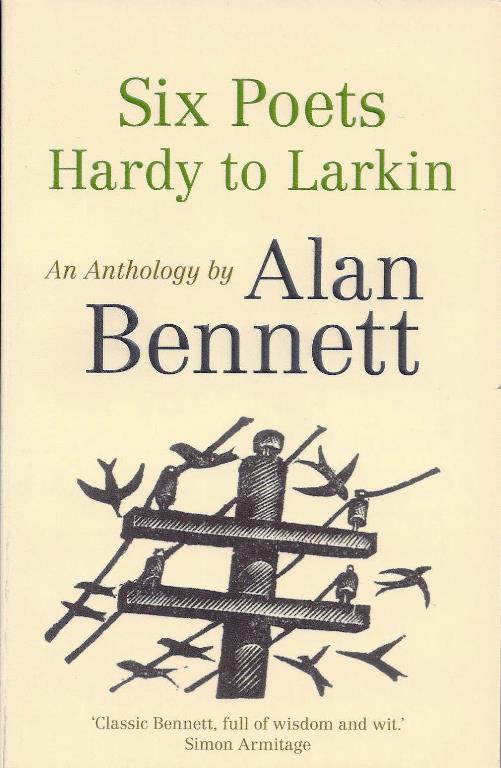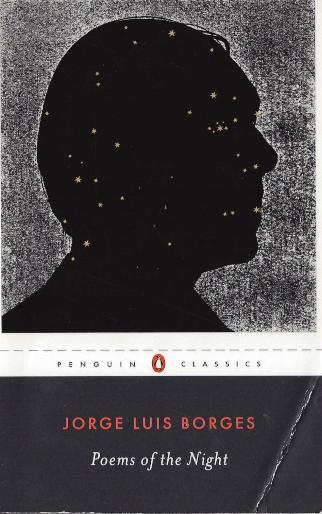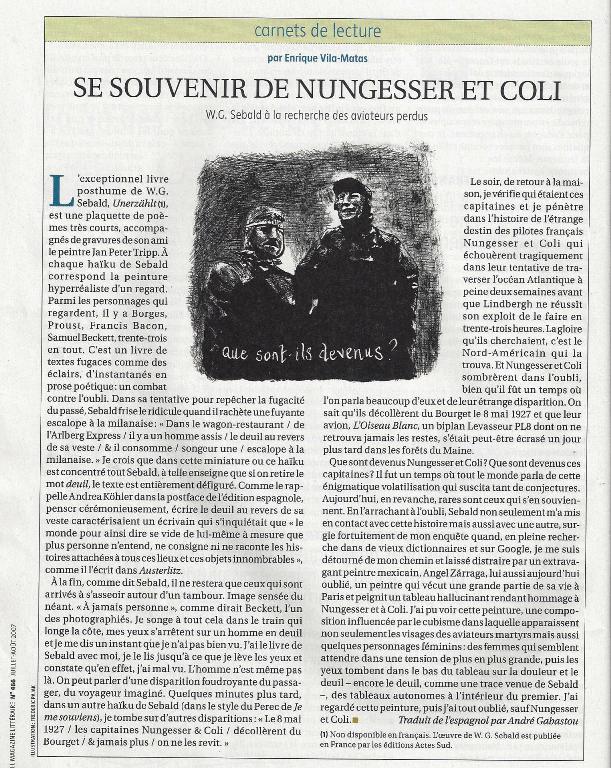Obituary: Shimon Peres
Intriguing
for peace: Âm
Mưu Hòa Bường
Shimon Peres, an Israeli statesman, died on September 28th, aged 93
HE OUTLIVED
all his country’s other founding fathers, but failed in what he most yearned
for: to lead it into a lasting peace. Missed opportunities dogged Shimon
Peres’s career. He gained the highest offices—prime minister, twice,
and president—but the political arithmetic invariably went against him.
His forte was foreign policy, but his political nemesis, Menachem Begin,
signed the peace treaty with Egypt in 1979, and his arch-rival, Yitzhak
Rabin, got most of the plaudits for Israel’s deal in 1993 with the Palestinian
leader, Yasser Arafat.
Mr Peres’s
imprint was lasting, nonetheless. As a precocious young civil servant,
he brokered arms deals which helped his uniformed counterparts to get the
weapons they needed. He circumvented arms embargoes with creative ruses,
such as buying warplanes as, purportedly, film props, and cannily found
leaky frigates and rusty tanks in places where they were no longer needed.
He bargained hard, shaming rich countries for charging full price to tiny,
beleaguered Israel, and cajoling rich sympathisers. It meant breaking a
lot of rules. Jimmy Hoffa, boss of America’s Teamsters union, became a
friend, and Israel’s rapprochement with West Germany was cemented with
marathon drinking sessions with the arch-conservative Bavarian, Franz-Josef
Strauss.
Sách
&
Báo
Mới

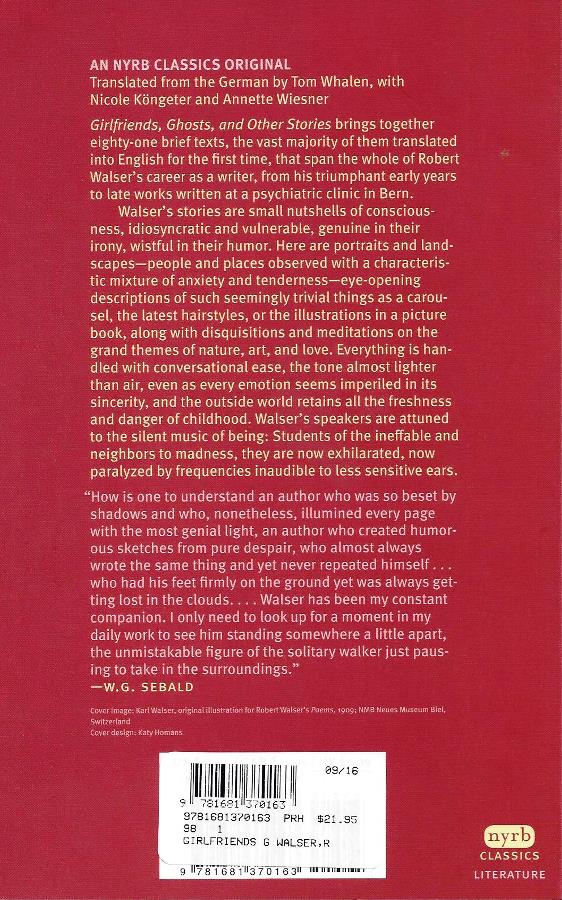
SOMETHING ABOUT WRITING
IF I'M not mistaken, Balzac,
for example, wrote novels nonstop until the moment that pulled him
out of the practice of his profession. Let us just try and roughly imagine
the extent of such a faculty for fantasizing. For Dostoyevsky, as I
believe I should know, it may have been the same. After publishing a
string of comparatively very worthwhile novellas, Gottfried Keller entered
the civil service, which for the next fifteen years kept him from
any further continuous literary work. Adalbert Stifter, who possessed
a lively talent for narrative like an effervescent spring upon which
he drew to his heart's content, held a civil service post in education.
Goethe, this giant, as his life history displays, poeticized himself
into, as it were, a courrlike, that is, administrative position through
works that soared into the ranks of the imperishable. The existence of
a writer is determined by neither success nor acclaim, but rather depends
on his desire or power to tabulate anew again and again. Balzac apparently
did this constantly, Keller not, and undoubtedly there were reasons why
he didn't. I believe the causes as to why some continue to write on and
on and others at times cease their poetic endeavors are, under certain
circumstances, too subtle to be easily defined. External events are capable
of giving a career a certain direction; for example, the character or incidents
in the region of the heart may be worthy of serious consideration. Some
writers present their best work at the beginning of their strivings only
to succumb afterwards to their proclivity, bit by bit, to flatten out,
while we know of quite a few others who strike us as curious because they
happen to start inconspicuously or uncertainly, but nevertheless precisely
for this reason acquire in the course of time more certitude, superior
vision, etc. To which type one gives preference is left to necessity. Every
writer is an aggregate of two people, the citizen and the artist, to which
he, more or less fortunately, resigns himself.
(1930)
Note: Bài Bạt tuyệt
lắm. Tin Văn sẽ đi liền.
Tác giả bài viết, Tom Whalen nhìn ra 1 Walser
khác hẳn với cách nhìn chung, coi ông cùng
dòng với Musil, Broch hay Thomas Mann, thí dụ.


LI-YOUNG LEE
Folding a Five-Cornered Star
So the Corners Meet
This sadness I feel tonight is not my sadness.
Maybe it's my father's.
For having never been prized by his father.
For having never profited by his son.
This loneliness is Nobody's. Nobody's lonely
because Nobody was never born
and will never die.
This gloom is Someone Else's.
Someone Else is gloomy
because he's always someone else.
For so many years, I answered to a name,
and I can't say who answered.
Mister Know Nothing? Brother Inconsolable?
Sister Every Secret Thing? Anybody? Somebody?
Somebody thinks:
With death for a bedfellow,
how could thinking be anything but restless?
Somebody thinks: God, I turn my hand face down
and You are You and I am me.
I turn my hand face up
and You are the I
and I am your Thee.
What happens when you turn your hand?
Lord, remember me.
I was born in the City of Victory,
on a street called Jalan Industri, where
each morning, the man selling rice cakes went by
pushing his cart, its little steamer whistling,
while at his waist, at the end of a red string,
a little brass bell
shivered into a fine, steady seizure.
This sleeplessness is not my sleeplessness.
It must be the stars' insomnia.
And I am their earthbound descendant.
Someone, Anyone, No one, me, and Someone Else.
Five in a bed, and none of us can sleep.
Five in one body, begotten, not made.
And the sorrow we bear together is none of ours.
Maybe it's Yours, God.
For living so near to your creatures.
For suffering so many incarnations unknown to Yourself.
For remaining strange to lovers and friends,
and then outliving them and all of their names for You.
For living sometimes for years without a name.
And all of Your spring times disheveled.
And all of Your winters one winter.
from Image
SUJI
KWOCK KIM
Return of the Native
****
for Kang,
born in Sonchon, North Korea
Better not to have been born
than to survive everyone you loved.
There's no one left of those who lived here once,
no one to accuse you, no one to forgive you-
only beggar boys or black-market wives
haggling over croakers and cuttlefish,
hawking scrap-iron and copper-pipes stripped from factories
in the shadow of the statue of the Great Leader.
Only streets emptied of the villagers you knew,
only the sound of steps of those no longer living,
ghosts grown old, grim shadows of what they had once been:
some in handcuffs, some in hoods taken away at midnight,
some roped and dragged into Soviet Tsir trucks
driven to the labor camps that "don't exist."
Every absence has a name, a face, a fate:
but who, besides you, remembers they were ever alive?
You don't know why you were spared,
why you breathe walk drink eat laugh weep-
never speaking of those who had been killed,
as if they had never existed, as if the act of surviving
them
had murdered them.
Forget,jorget! But they want to be remembered.
Better people than you were shot:
do you think your life is enough for them?
For the silence
is never silent: it says We hate you
because you survived. No. We hate you
because you escaped.
from Ploughshares
Imaginary Beings
Book
The Sphinx
The Sphinx found on Egyptian monuments
(called "Androsphinx" by Herodotus, to
distinguish it from the Greek creature) is a recumbent
lion with the head of a man; it is believed to represent
the authority of the pharaoh, and it guarded the tombs
and temples of that land. Other Sphinxes, on the avenues
of Karnak, have the head of a lamb, the animal sacred
to Amon. Bearded and crowned Sphinxes are found on monuments
in Assyria, and it is a common image on Persian jewelry. Pliny
includes Sphinxes in his catalog of Ethiopian animals,
but the only description he offers is that it has "brown
hair and two mammae on the breast."
The Greek Sphinx
has the head and breasts of a woman, the
wings of a bird, and the body and legs of a lion. Others
give it the body of a dog and the tail of a serpent.
Legend recounts that it devastated the countryside of
Thebes by demanding that travelers on the roads solve
riddles that it put to them (it had a human voice); it devoured
those who could not answer. This was the famous question
it put to Oedipus, son of Jocasta: "What has four feet, two
feet, or three feet, and the more feet it has, the weaker
it is?" (1)
Oedipus answered
that it was man, who crawls on four legs as
a child, walks upon two legs as a man, and leans
upon a stick in old age. The Sphinx, its riddle solved,
leapt to its death from a mountaintop.
In 1849 Thomas
De Quincey suggested a second interpretation,
which might complement the traditional one.
The answer to the riddle, according to De Quincey,
is less man in general than Oedipus himself, a helpless
orphan in his morning, alone in the fullness of his manhood,
and leaning upon Antigone in his blind and hopeless
old age.
(1)
This is apparently the oldest version
of the riddle. The years have added the
metaphor of the life of man as a single day, so that
we now know the following version of it: "What animal walks
on four legs in the morning, two legs at midday, and three
in the evening?"
Đọc/Viết
mỗi ngày
Borges
Conversations
You Only Need To Be Alive:
Art Should Free Itself from Time
OSVALDO FERRARI. Today we will
talk about beauty. But before we do so, we will transcribe your views
about the place of art and literature in our times as discussed in an
earlier conversation.
JORGE LUIS BORGES. Art and literature ... should try and free
themselves from time. Often, I have been told that art depends on politics
or on history. I think that's untrue. It escapes, in some way, from the
organized causality of history. Whether art happens or doesn't, either
depend on the artist.
FERRARI. Another matter not usually talked or thought about,
apart from the spiritual life, is beauty. It's odd that, these days,
artists or writers do not talk about what is supposedly always their
inspiration or objective, that is, beauty.
BORGES. Perhaps the word has been worn out but not the concept-
because what purpose does art have other than beauty? Perhaps the word
'beauty' is not beautiful though the fact is, of course.
FERRARI. Certainly, but in your writing, your poems, your stories
...
BORGES. I try to avoid what's called 'ugly art'- sounds horrible,
doesn't it? But there have been so many literary movements with horrible
names. In Mexico, for example, there was a literary movement frighteningly
called Stridentism. It finally shut up, which was the best thing it could
do. To aspire to be strident-how awkward, isn't it!
My friend Manuel Maples Arce led that movement against the great
poet Ramon Lopez Velarde. I remember his first book-without any hint
of beauty, it was called 'Inner Scaffolding'. That's very awkward isn't
it? (Laughs) To possess inner scaffolding? I remember one
line of a poem, if it was a poem at all: 'A man with tuberculosis has committed
suicide in all the newspapers'. It's the only line I recall. Perhaps my
forgetfulness is kind-if that was the best line in the book, on shouldn't
expect much from the rest of it. I saw him many years later in Japan. I think
he was the Mexican ambassador there and that had made him forget not only
literature but his literature. But he has remained in the histories of literature,
which collects everything, as the founder of the Stridentist movement
(both laugh). Wanting to be strident-one of the most awkward
of literary desires.
FERRARI. As we are talking about beauty, I would like to consult
you about something that has caught my attention. Plato said that of
all the archetypal and supernatural entities, the only visible one on
earth the only manifest one, is beauty.
BORGES. Yes, made manifest through other things.
FERRARI. Caught by our senses.
BORGES. I'm not sure about that.
FERRARI. That's what Plato said.
BORGES. Well, of course, I suppose that the beauty of a poem
has to appeal to our ears and the beauty of a sculpture has to pass
through touch and sight. But these are mediums and nothing more. I don't
know if we see beauty or if beauty reaches us through forms which could
be verbal or sensual or, as in the case of music, auditory. Walter Pater
said that all the arts aspire to the condition of music. I think that
is because form and content fuse in music. That is, one can tell the plot
of a story, perhaps even give it away, or that of a novel, but one cannot
tell the story of a melody, however straightforward it may be. Stevenson
said, though I think he was mistaken, that a literary character is nothing
but a string of words. Well, it is true, but at the same time it's necessary
that we perceive it as more than a string of words.
We must believe in it.
FERRARI. It must, in some way, be real.
BORGES. Yes. Because if we sense that a character is only a string
of words, then that character has not been well created. For example,
reading a novel, we must believe that its characters live beyond what
the author tells us about them. If we think about any character in a novel
or a play, we have to think that this character, in the moment that we
see him, sleeps, dreams and carries out diverse functions. Because if we
don't, then he would be completely unreal.
FERRARI. Yes. There's a sentence by Dostoyevsky that caught my
eye as much as one by Plato. About beauty, he said, 'In beauty, God
and the devil fight and the battlefield is man's heart.'
BORGES. That's very similar to one by Ibsen, 'That life is a
battle with the devil in the grottoes and caverns of the brain and that
poetry is the fact of celebrating the final judgment about oneself.'
It's quite similar, isn't it?
FERRARI. It is. Plato attributes beauty to a destiny, a mission.
And among us, Murena has said that he considers beauty capable of transmitting
an other-worldly truth.
BORGES. If it's not transmitted, if we do not receive it as a
revelation beyond what's given by our senses, then it's useless. I believe
that feeling is common. I have noticed that people are constantly capable
of uttering poetic phrases they do not appreciate. For example, my mother
commented on the death of a very young cousin to our cook from Cordoba.
And the cook said, quite unaware that it was literary, 'But Senora, in order
to die, you only need to be alive.' You only need to be alive! She was unaware
that she had uttered a memorable sentence. I used it later in a story: 'You
only need to be alive'-you do not require any other conditions to die, that's
the sole one. I think people are always uttering memorable phrases without
realizing it. Perhaps the artist's role is to gather such phrases and retain
them. George Bernard Shaw says that all his clever expressions are the ones
he had casually overheard. But that could be another clever feature of Shaw's
modesty.
FERRARI. A writer would be, in that case, a great coordinator
of other people's wit.
BORGES. Yes, let's say, everyone's secretary-a secretary for
so many masters that perhaps what matters is to be a secretary and not
the inventor of the sayings.
FERRARI. An individual memory of a collective.
BORGES. Yes, exactly that.
Bạn chỉ cần còn sống,
và nếu may mắn hơn Y Uyên, bạn sẽ đụng 1 cuộc chiến khác,
khủng khiếp cũng chẳng kém: Văn Chương.
Bạn chỉ cần, chỉ cần,
chỉ cần.... còn sống!
Đám tinh anh Ngụy chết vì câu này.
Chúng chỉ cần còn sống, và tìm đủ mọi cách
để.... bỏ chạy cuộc chiến.
Lũ Triết Mít, sở dĩ chúng chọn Triết, vì
cứ học thuộc lòng cours của Thầy, là đậu, là được
hoãn dịch, là thoát chết.
Rõ ràng là, đám này không
viết được 1 cái gì cho ra hồn, là do phần đạo hạnh
của chúng có 1 vết chàm to tổ bố, làm sao
viết?
Mỹ là Mẹ của Đạo Hạnh. Đạo Hạnh có vết chàm
làm sao có Mỹ?
Rồi đám bỏ cuộc chiến bằng con đường du học, cũng Mắm Sốt
Kít!
Ferrari:
Dos phán, trong cái đẹp Chúa và Quỉ uýnh
lộn và chiến trường là trái tim của con người
Borges. Giống câu của Ibsen, Đời là cuộc chiến với
quỉ, ở hang cùng ngõ hẻm của cục não của con người
và thơ là sự lên ngôi của Phán Quyết
Chót của 1 con người về chính nó.
Đúng thế. Plato gán cái đẹp, cho số phần,
cho nhiệm vụ. Và giữa chúng ta, Murena phán, cái
đẹp có thể chuyên chở một sự thực “khác”
Trong cuốn tiểu luận nho nhỏ trên,
đa số là những phê bình, nhận định, điểm
sách, có hai bài viết về tuổi thơ, phải
nói là tuyệt cú mèo. Tin Văn sẽ post,
và lai rai ba sợi về chúng.
Bài “Tuổi thơ đã mất”,
The Lost Childhood, viết về những cuốn sách mà
chúng ta đọc khi còn con nít. “Gánh
nặng tuổi thơ”, theo Gấu, tuyệt hơn, phản ứng của con người,
ở đây, là ba nhà văn hách xì
xằng, về thời thơ ấu khốn khổ khốn nạn của họ, và bằng cách
nào, họ hất bỏ gánh nặng này.
Khi Gấu trở về lại Đất Bắc, Gấu
thấy mình giống như một kẻ đi tìm gặp một
thằng Gấu còn ở lại Đất Bắc, và, tìm hiểu,
bằng cách nào thằng Gấu đó hất bỏ được gánh
nặng tuổi thơ…
L' Appel Du Mort
Lướt
TV
http://www.tanvien.net/Ky/Hay_doi_hay_dien.html
Ðuốc Tình
Có
một người con gái rất trẻ
hỏi một người phụ nữ lớn tuổi
Đàn ông yêu như thế nào
họ yêu có khác mình không?
Người
phụ nữ ngẫm nghĩ
Tình yêu của đàn ông à?
Lạ lắm
nói thế nào cho đúng nhỉ
Thế
này nhé
Đó là một ngày
bỗng dưng
có một người đàn ông ở đâu đến
một tay cầm bó đuốc
tay kia gõ gõ lên cánh cửa hồn
mình
ngọn đuốc
cháy phừng phừng
tưởng như không có cách nào dập
tắt được
Anh
ta quơ quơ ngọn đuốc
linh hồn mình bắt cháy
thành than
Anh ta ghé xuống
sưởi cả thân thể ấm áp của riêng anh
xong
bỏ đi
quên ngay ngọn lửa
Và
đàn bà
thì muôn thủa
tiếc ngọn lửa đã đốt cháy hồn mình
thu những tàn tro
phủ lên những mảnh than còn sót lại
cố che chắn giữ cho đốm lửa âm ỉ
tự sưởi một phần đời
Cho
dù có một ngọn lửa khác đốt lên
hong ấm lại nàng
những mảnh than đầu tiên
vẫn không bao giờ tắt
Đó
là sự khác biệt về tình yêu
giữa đàn ông và đàn bà.
TMT
Note:
Bài thơ, đăng trên DM, có 1 lỗi đánh
máy, GCC chờ hoài, coi có ai nhận ra.
Nô là Nô.
Thơ bị coi rẻ là vậy.
Một cái dấu phảy thôi, mà có
thế giới, chết vì nó, như Cioran đã từng mơ tưởng.
GCC sợ rằng, chính tác
giả của bài thơ cũng coi rẻ nó.
NMG phán về GCC, ông
ưa cầu toàn, vì cái tật, vừa gửi text đi, là
đã gửi tiếp text revised liền tù tì theo rồi.
Hồi GCC còn quan hệ thân
thiết với đám bạn văn VC, có 1 em nhận xét,
vừa nhận 1 bài viết của anh, đã có liền bài
revised, chỉ khác bài trước, đúng 1 cái
dấu phảy!
Hà, hà!
Gọi là
gì, xứ của anh?
Sau núi, sau năm?
Tôi biết, gọi là gì
Chuyện mùa đông, nó được gọi
Nó được gọi, chuyện mùa hè
Ba năm mẹ già (1) cũng đừng trông, nó
là thế
Thế nó là
Nó lang thang khắp nơi
Như ngôn ngữ
(1) Người
đi, ừ nhỉ người đi thực
Ba năm mẹ già cũng đừng trông
Thâm Tâm: Tống Biệt Hành
Là
cái gì, chuyện 1 bản văn (hay bất cứ cái chi
chi) cưỡng lại cố gắng của chúng ta khi làm cho nó
có nghĩa?
Về câu hỏi này, những bản viết của George Steiner
có vẻ như chỉ đúng hướng cho chúng ta. Câu
hỏi phơi bày cho chúng ta, tới cái kinh nghiệm
cơ bản của người dịch thuật, mà người ta có thể tóm
gọn, và nói, đây là thứ kinh nghiệm có
trước tất cả mọi kinh nghiệm, kinh nghiệm về không-căn cước, hay
về cái cá thể tối giản, hết còn đơn giản được nữa,
của mọi hiện hữu, đặc biệt là về con người và ngôn
ngữ của nó. Kinh nghiệm này thì vừa đạo hạnh, vừa
mở, nghĩa là không bao giờ chấm dứt.
Một bên thì cố gắng làm cho bên
kia trở thành thông suốt, ở bên trong ngôn
ngữ, khung văn hóa của riêng nó, nhưng bên
kia không thể nào bị khách hoá, đối tượng
hóa, theo cái kiểu này, bởi vì nó
thuộc về thế giới của riêng nó, và không
thể nào bị đánh gốc, bật rễ ra khỏi nếu không dùng
bạo lực. Cổ đại Latinh hiểu rõ điều này, khi gắn kết dịch
thuật với những chiến thắng thành phố, bắt nô lệ, và
khuân của cải về nhà – nói ngắn gọn, sự hình
thành đế quốc.
Cái
em nhà quê tuy lớn lên ở ngoài này,
đâu có hiểu rằng là, khi dịch ba thứ văn thơ ăn
cướp của VC, là cũng góp phần kiện toàn Cái
Ác Bắc Kít.
[Sorry DTBT. NQT]
Không phải tự nhiên
mà TV lại giới thiệu những tác giả như W.G. Sebald.
Cũng thế, phản ứng của 1 anh bạn văn VC ở Hà Nội,
sao cứ lải nhải hoài về Lò Thiêu, mắc mớ gì
đến Mít.
Hay của 1 độc giả TV, mi bị THNM rồi, nhìn đâu
cũng thấy VC.
May mà có em BHD, không thì mi
biến thành quỉ VC từ khuya rồi!
Cũng thế, không phải tự
nhiên “em” DTBT, ưa mơ mộng, thích vượt khoảng trống
dịch thơ LTMD, người đẹp của HPNT, thí dụ.
Trong bài phỏng vấn, do khả năng chắc cũng hơi hạn
hẹp của cả hai, cho nên chẳng người nào đề cập đến sự
nguy hiểm của dịch dọt.
Nếu không bị đám
khốn xúm lại đánh, [ngay khi Chợ Cá vừa xuất
hiện. Trận đòn hội chợ này có sự tiếp tay của
Sến. Em giả đò thương hại, khi có vài độc giả lên
tiếng bênh Gấu, sao anh không chịu đích thân
trả lời, hết xí oát rồi hả…], thì Gấu đã tiếp
tục loạt bài về dịch cho talawas.
SCN lúc đầu rất mừng, liền sau khi đọc bài
đầu Gấu gửi. Em viết mail, trước giờ, viết sâu sắc, nhưng bài
này, Dịch
Là Cướp,
cho thấy khía cạnh tức cười…. Gấu đã tính đi 1 loạt
bài cho CC.
Cái tít của Sến, của Gấu dài thòng.
SCN rất có tài đặt tít. Thật gọn, thật
nổi. Cái tít “Miếng Cơm Manh Chữ” cũng của Sến
Nay nhân cơ hội, viết
tiếp.
Trước hết, giới thiệu bài của Gerald L. Bruns
Về Cái Khó, On Difficulty: Steiner, Heidegger, and
Paul Celan
Trong Ðọc Steiner,
Reading George Steiner.
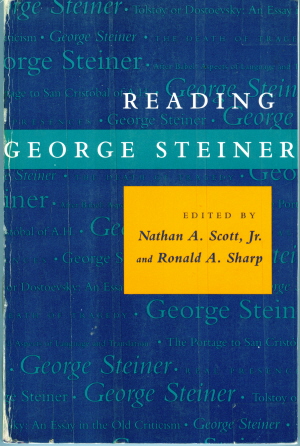
Cuốn này của NTV cho
GCC, ngay những ngày mới ra hải ngoại, khi thấy GCC mê Steiner
quá!
Anh cho biết, đọc Steiner từ Việt Nam, trước 1975, tại Sài
Gòn, cuốn Ngôn ngữ và Câm lặng,
nhưng không bị choáng như GCC.
Và kết luận, mi phải có Cái Ác
Bắc Kít, và nó phải thật đậm đặc đến nỗi, vừa
gặp… Cái Ác Nazi và Lò Thiêu,
là nó bùng bổ ra.
Cốm là 1 đặc sản của
Mít, nó đâu có từ đương đương để mà dịch
qua tiếng Anh?
Cũng thế, những từ “phanh”, lốp [xe], xà phòng
của Tây mũi lõ, mà dân Mít mượn.
Ðâu chỉ 1 từ cốm. Những từ áo dài,
cái nhà, nước mắm, con gái… mũi lõ chỉ
nội nghe đọc lên, là đã thèm nhỏ nước miếng
rồi.
Vậy mà dám dịch là “green rice”, thì
đúng là hiếp dâm… cốm!
Em này do sống ở ngoài này, thành
ra chưa từng nhìn thấy cái gọi là green rice,
thứ gạo hẩm, lên men xanh, bốc mùi hôi, mà
nhờ VC Bắc Kít giải phóng Miền Nam, dân Miền Nam mới
nhìn thấy và được thưởng thức.
Em cũng bày đặt mê tiếng thơ át tiếng
bom, thành ra mới dịch thơ của người đẹp và con thú
LTMD, mới dịch cái gì gì “Đạn bom rơi chẳng sợ đâu/
Chỉ e sương ướt mái đầu lá chanh", mà DTBT dịch
“We are not frightened by bullets and bombs in the air/Only by dew wetting
our lime-scented hair”, “Tình Sầu” thành “Meditations
on Love”… thật tội nghiệp cho chữ nghĩa Việt Nam quá chừng!!!
[Trích 1 cái còm của một độc giả trên DM].
Ðây là ăn phải Kít WJC.
Hay có thể, cũng nhắm đường về rồi.
*
GERALD L. BRUNS
On Difficulty: Steiner, Heidegger,
and Paul Celan
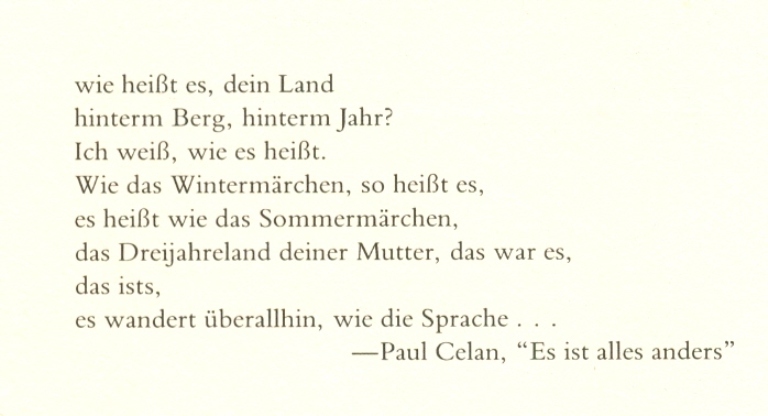
what is it called, your country
behind the mountain, behind
the year?
I know what it's called.
Like the winter's tale,
it is called,
it's called like the summer's tale,
your mother's threeyearland,
that's what it was,
what it is,
it wanders off everywhere,
like language.
Gọi là gì, xứ của
anh?
Sau núi, sau năm?
Tôi biết, gọi là gì
Chuyện mùa đông, nó được gọi
Nó được gọi, chuyện mùa hè
Ba năm mẹ già (1) cũng đừng trông, nó
là thế
Thế nó là
Nó lang thang khắp nơi
Như ngôn ngữ
(1) Người đi, ừ nhỉ người đi
thực
Ba năm mẹ già cũng đừng trông
Thâm Tâm: Tống
Biệt Hành
ALEXIS RHONE FANCHER
When I turned fourteen,
my mother's sister took me
to lunch and said:
***
soon you'll have breasts. They'll mushroom on your
smooth chest like land mines.
A boy will show up, a schoolmate, or the gardener's son.
Pole-cat around you. All brown-eyed persistence.
He'll be everything your parents hate, a smart aleck,
a dropout, a street racer on the midnight prowl.
Even your best friend will call him a loser.
But this boy will steal your reason, have you
writing his name inside a scarlet heart, entwined
with misplaced passion and a bungled first kiss.
He'll bivouac beneath your window, sweet-talk you
until you sneak out into his waiting complications.
Go ahead, tempt him with your new-found glamour.
Tumble into the backseat of his Ford at the top of Mulholland,
flushed with stardust, his mouth in a death-clamp on your
nipple,
his worshipful fingers scatting sacraments on your clit.
Soon he will deceive you with your younger sister,
the girl who once loved you most in the world.
from Ragazine
From The Best
American Poetry 2016
Note:
Đọc song song với Đuốc Tình
|
Trang NQT
art2all.net

Lô
cốt
trên
đê
làng
Thanh Trì,
Sơn Tây
|




